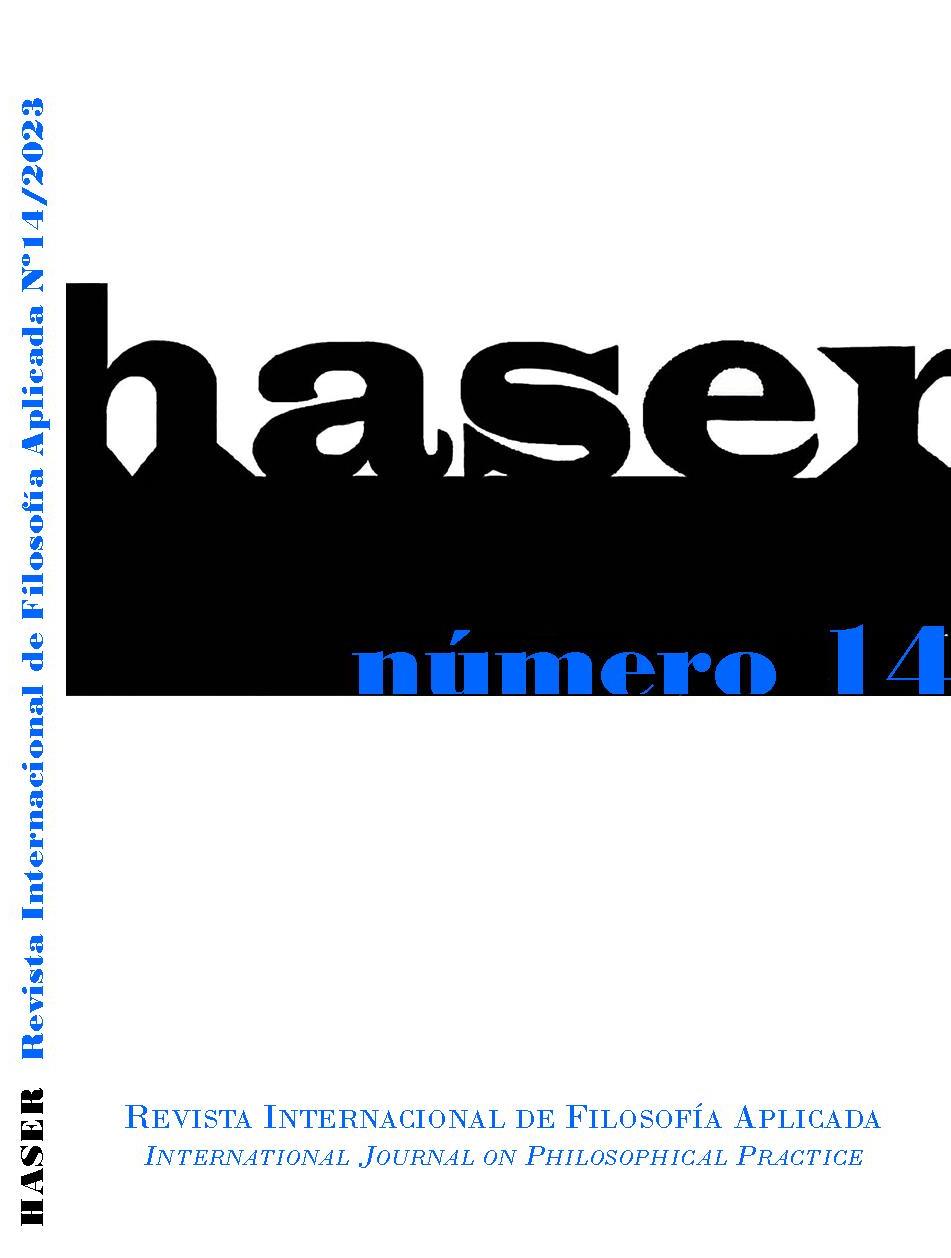Philosophy as a Best Practice: Towards a possible Guideline for Philosophical Counselling
Abstract
This article aims to be a brief synthesis of my personal experience as a certified philosophical counsellor – as practised in the last 10 years – that I shared in the form of a presentation with the global audience of students and expert colleagues during the 1st International Conference on Philosophical Counselling, organized by Professor Balakanapathi Devarakonda, Department of Philosophy,at the University of Delhi, 14-16 January 2022. The conference was held under the aegis of the Indian Council of Philosophical Research (ICPR), New Delhi, and the Department of Education, University of Delhi.
The philosophical horizon, “the train of thought” (Whitehead, 1978), within which I find most of the ‘travel friends’ for extending the dialogue with my clients, forms the first part of the article, together with some frequently asked questions, both on the client’s and the counsellor’s side.
The second part of the article includes a couple of real practical cases, a good and a bad one. As a presentation, it was aimed to stimulate discussion on the decisions made, and analyse eventual controversies together.
Thus, for the time being, the presentation was meant to be mainly a helpful handout, while as a work in progress, it has a more ambitious goal: to become a sort of ‘Guideline for Philosophical Counselling as a Best Practice’, that borrows some lexicon from the medical field, along with few methodological criteria.
I am well aware that this goal may appear as risky as hard to fulfil, since we all know there is not only ‘one philosophy’, neither only one vision of the world, nor a unique method for philosophical counselling. There are too many geographical, historical, anthropological, linguistic – in one word, cultural – implications that make the philosophical scenario always complex and multifaceted. Therefore, not a one-size-fits-all handbook on philosophical practice, but rather a guideline based on evidences that will end with some recommendations.
As a matter of fact, one frequent objection moved against the application of philosophy as an effective way to help ordinary people in managing everyday life problems is that philosophical counsellors generally refuse to adhere to standards that may prove the quality of their work, and ground its validity.
Recommendations will be classified from grade A to grade C, according to their validity in terms of practical efficacy and positive outcomes for the clients:
- Category A: strongly recommended for implementation, and supported by numerous successful cases, philosophical texts and studies;
- Category B: recommended and accepted as a practice, supported by limited evidence and philosophical literature;
- Category C: represents an issue for which limited consensus regarding its validity exists.
In the final text I would like to include a few pitfalls, as well as some open issues and a list of tips and tricks which may be beneficial to our younger colleagues and practitioners.
Downloads
Downloads
Published
How to Cite
Issue
Section
License
Los autores/as que publiquen en esta revista aceptan las siguientes condiciones:
1. Los autores/as conservan los derechos de autor y ceden a la revista el derecho de la primera publicación, con el trabajo registrado con la licencia de atribución de Creative Commons, que permite a terceros utilizar lo publicado siempre que mencionen la autoría del trabajo y a la primera publicación en esta revista.
2. Los autores/as pueden realizar otros acuerdos contractuales independientes y adicionales para la distribución no exclusiva de la versión del artículo publicado en esta revista (p. ej., incluirlo en un repositorio institucional o publicarlo en un libro) siempre que indiquen claramente que el trabajo se publicó por primera vez en esta revista.
3. Se permite y recomienda a los autores/as a publicar su trabajo en Internet (por ejemplo en páginas institucionales o personales) antes y durante el proceso de revisión y publicación, ya que puede conducir a intercambios productivos y a una mayor y más rápida difusión del trabajo publicado (vea The Effect of Open Access).


